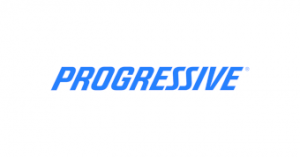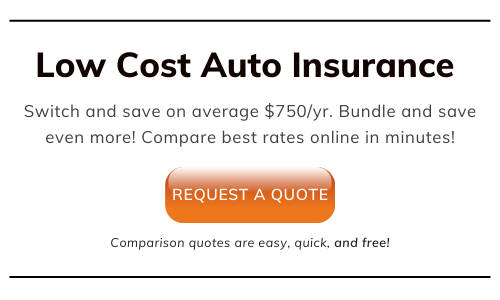Cheap Car Insurance in New Jersey
Free Insurance Comparison
Compare Quotes From Top Companies and Save
Secured with SHA-256 Encryption
Kristen Gryglik
Licensed Insurance Agent
Kristen is a licensed insurance agent working in the greater Boston area. She has over 20 years of experience counseling individuals and businesses on which insurance policies best fit their needs and budgets. She knows everyone has their own unique needs and circumstances, and she is passionate about counseling others on which policy is right for them. Licensed in Massachusetts, New Hampshire,...
Licensed Insurance Agent
UPDATED: Mar 23, 2024
It’s all about you. We want to help you make the right coverage choices.
Advertiser Disclosure: We strive to help you make confident insurance decisions. Comparison shopping should be easy. We are not affiliated with any one insurance provider and cannot guarantee quotes from any single provider.
Our insurance industry partnerships don’t influence our content. Our opinions are our own. To compare quotes from many different insurance companies please enter your ZIP code on this page to use the free quote tool. The more quotes you compare, the more chances to save.
Editorial Guidelines: We are a free online resource for anyone interested in learning more about insurance. Our goal is to be an objective, third-party resource for everything insurance related. We update our site regularly, and all content is reviewed by insurance experts.
Although New Jersey’s insurance rates might be a little higher than other states, there are still ways to lower your premiums.
Your driving record, age, and experience, as well as your vehicle’s safety features, can all help you score a hefty discount.
Some aspects of the state’s no-fault system may be confusing, but once you understand them, you are well on your way to finding the cheapest car insurance in New Jersey.
Use this guide to compare costs and lock in the best rates on monthly or annual coverage.
Cheapest Car Insurance in New Jersey
Here are the top 4 providers of cheap car insurance in NJ:
State Farm
Established by an Illinois farmer in 1922, State Farm is now the nation’s number one home and car insurance underwriter. The company consistently receives excellent ratings for its financial strength from A.M. Best and S&P Global Ratings.
If you’re interested in monthly car insurance, State Farm lets you create a custom payment plan and pick your billing date. You can still qualify for other discounts based on your driving record and claims history.
Progressive

With more than 18 million policyholders, Progressive is one of the nation’s five largest insurers. The brand advertises numerous money-saving features, such as the Name Your Price Tool® and Snapshot®, a system that monitors your driving.
It claims that drivers who switch to Progressive save an average of $668. The 2017 New Jersey Auto Insurance Consumer Information Report found that Progressive had fewer complaints than Hartford, Esurance, Liberty Mutual, and Hanover.
Compare Rates with Progressive
Allstate

Originally a division of Sears, Allstate has been in business for nearly 90 years, and it currently controls almost 10 percent of the nation’s car insurance market. Allstate has a strong financial rating and generous discount program, including accident forgiveness and student discounts worth up to 35 percent.
The company also offers 5 and 10 percent discounts to customers who set up auto withdrawals or pay in full.
USAA

This member-owned company was one of J.D. Power’s top picks based on customer satisfaction, policy options, and pricing.
USAA offers numerous discounts, and there’s no fee for installment plans. According to a company-sponsored survey, new policyholders saved $700 on average. However, there’s one caveat.
To join the United Services Automobile Association, you or a family member must have served in the military.
Enter your ZIP code below to view companies that have cheap insurance rates.
Secured with SHA-256 Encryption
How Much is Car Insurance in New Jersey?
Drivers in the Garden State may pay more for car insurance than anywhere else in the nation, according to the National Association of Insurance Commissioners.(NAIC).
Although rates only increased by 6 percent between 2011 and 2015, New Jersey residents still paid 31 percent more for car insurance than the average American driver.
Here’s how the Garden State compares to its neighbors.
| Average Cost of Car Insurance in New Jersey | $1,382.79 |
| Average Cost of Car Insurance in New York | $1,360.66 |
| Average Cost of Car Insurance in Connecticut | $1,151.07 |
| Average Cost of Car Insurance in Pennsylvania | $970.51 |
| Average Cost of Car Insurance in the U.S. | $1,009.38 |
In part, rates are higher in New Jersey due to the state’s no-fault insurance system and minimum coverage requirements. However, its high population density, commuter traffic, vehicle theft rate, and disposable income level also influence insurance costs.
Read more:
Population Density
Outside the District of Columbia, New Jersey has the highest population density in the nation with some 1,203 people per square mile which is much larger than the national average of 90.
Additionally, just 0.1 percent of its residents live outside a metropolitan area. Although the population of your hometown only has an indirect impact on insurance rates, it translates to heavier traffic and an elevated accident rate, which can drive up your premiums.
Traffic Conditions
The New Jersey Turnpike, The Garden State Parkway, Interstate 80 and U.S. Route 30 are some of the state’s busiest and most dangerous highways.
Each mile of highway receives 1.9 million miles of yearly vehicle traffic, which is more than double the national average.
Due to the heavy traffic volume, variable weather, and endless road work, it’s not surprising that the New Jersey Department of Transportation processes approximately 320,000 crash reports annually.
Even though the state’s fatal crash rate is lower than the U.S. average, the high number of collisions is the primary reason why New Jersey drivers pay more for coverage.
Vehicle Theft Rates
Statewide, more than 11,000 cars were reported stolen in 2016, including 2,132 in Newark, 551 in Jersey City, and 505 in Camden. However, only 126 cars per 100,000 residents were stolen versus 236 nationally.
You may pay more for comprehensive coverage if you own one of these top-selling vehicles that are frequently targeted by thieves, according to the National Insurance Crime Bureau.
- Full-sized pickups made by Chevrolet, Dodge, Ford, and GMC
- Mid-sized cars, including the Chevrolet Impala, Dodge Charger, Honda Accord or Civic, Hyundai Elantra or Sonata, Nissan Altima, and Toyota Camry or Corolla
- SUVs and crossovers, especially the Jeep Cherokee and Grand Cherokee
Read more:
Disposable Income
In 2014, the NAIC estimated that the average New Jersey resident had nearly $50,000 in disposable income, which is almost $10,000 more than the national average.
This high disposable income makes New Jersey the nation’s most affluent state after Massachusetts. Due to the higher income levels, residents are more likely to own luxury vehicles that are costly to insure.
What is Mandatory for Car Insurance in New Jersey?

New Jersey is one of 12 states that follow a no-fault insurance system. This law was adopted in 1972 to reduce the number of personal injury lawsuits and streamline settlements. This statute means that drivers must have personal injury protection in addition to liability insurance.
PIP protects you and your passengers in case of an accident. Regardless of who’s at fault, your insurance company reimburses you for medical care and lost wages.
To meet state minimums, drivers in New Jersey can choose from basic or standard car insurance policies with customizable coverage limits.
There’s also a dollar-a-day Special Automobile Insurance Policy for federally qualified Medicaid recipients.
Basic policies allow teen drivers and adults with few or no assets to lower their car insurance premiums by roughly 20 percent. With this option, you don’t have to purchase liability coverage for bodily injuries because the state assumes that other motorists have PIP insurance.
However, you assume personal liability if you injure another driver.
Basic policies meet the minimum coverage requirement by offering the following limits.
- Property damage liability of $5,000 per accident
- Personal injury protection of $15,000 per person or accident
Generally, drivers who have dependents or assets purchase standard policies that provide higher coverage limits and greater protection.
The following minimums apply to these policies.
- Bodily injury liability of $15,000 per person and $30,000 per accident
- Property damage liability of $5,000 per accident
- Personal injury protection of $15,000 per person or accident
- Uninsured Motorist/Underinsured Motorist coverage equal to your bodily injury liability limit
Additionally, New Jersey requires drivers to carry proof of insurance in their vehicles at all times. Acceptable forms include a paper insurance card or an electronic copy via a smartphone or tablet.
Insurers must issue a unique insurance card for each vehicle. If you fail to provide proof of insurance, you could face fines and other penalties.
How to Reduce the Cost of Your Car Insurance in New Jersey
Although you won’t find the nation’s cheapest car insurance in New Jersey, there are ways to lower your monthly premiums without decreasing your coverage. For example, if you’re a safe driver, you may receive a 20 percent discount automatically.
Once you understand the state’s minimum coverage requirements and you identify the supplemental options that you need to feel fully protected, use the following tips to lower your monthly costs.
- Change Your Deductible: In New Jersey, the minimum deductible is $250. To lower your premiums, consider increasing your deductible to $500, $1,000, or $2,000 as long as you can comfortably pay that amount out of pocket. When estimating your costs, remember that PIP coverage has a deductible plus a 20 percent copay until you reach the $5,000 out-of-pocket maximum.
- Adjust Your Coverage: Reduce your policy limits to control costs if you stay within state-mandated amounts. Consider dropping comprehensive and collision if your car is more than ten years old and the cost exceeds 10 percent of the vehicle’s value. If a member of your household is a high-risk driver, a named-operator exclusion could save you money too.
- Qualifying for Discounts: Discounts lower your car insurance premiums without affecting your coverage.
One or more of the following discounts could reduce your premiums by 5 to 25 percent.
- Safe driving discounts
- Accident-free and claim-free discounts
- Affinity deals offered by membership groups
- Loyalty discounts for customers with multiple policies
- Low-mileage discounts if you drive less than 7,000 annually
- Discounts for anti-theft features and safety devices
- Homeownership discounts
- Good student discounts
To make sure that you receive every discount applies to you, give your insurer information about your vehicle, your household, and each driver.
Have your VIN (Vehicle Identification Number), driver’s license, and membership cards available when you request quotes or contact an agent.
- Limiting Your Right to Sue: New Jersey gives you the option to lower your premiums by 30 percent if you waive your right to sue. A car insurance policy with a limited right to sue lets you seek damages for economic losses, such as diminished earning capacity and medical bills. With several exceptions, you won’t be able to sue for noneconomic damages like pain and suffering.
- Payment Plans: With New Jersey’s high car insurance costs, the premiums can stretch your budget to the limit. Monthly and quarterly payment plans make this expense more manageable in the short term but may increase your long-term costs. Companies typically add a $5 surcharge to each installment payment. On the other hand, if you pay in full, you can earn a 5 percent discount.
Enter your ZIP code below to view companies that have cheap insurance rates.
Secured with SHA-256 Encryption
What can Increase the Cost of Your Car Insurance in New Jersey?
No single factor determines car insurance rates. Insurance companies use complex mathematical formulas to measure your level of risk, but there are a few things that can significantly impact your premiums.
- Personal Information: Insurance companies base rates on your age, gender, driving experience, and where you live. They also look at your credit score, your claims history, and whether you’re a homeowner. Certain items, such as a lapse in continuous coverage, could label you as a high-risk driver and automatically increase your premiums.
- Driving History: Next, providers look at your driving record. They check for points on your license and determine if you have any record of a DUI. They are also concerned with how much and what type of driving you do. To qualify for the cheapest car insurance in New Jersey, you should be accident- and claim-free for five years, with a clean driving record.
- Your Vehicle: Finally, insurers determine the value of your vehicle and factor in any model-specific statistics that increase your risk. For example, sporty two-door coupes often cost more to insure than four-door sedans due to that vehicle’s driver profile. The age and value of your car influence your premiums as well as the coverage that you’re likely to select.
Shopping For Car Insurance in NJ
If you’re searching for competitive rates on quality auto insurance, start by identifying several companies that have strong financial ratings and positive customer reviews.
To maximize your potential savings, get at least three quotes, so you can compare costs.
If you aren’t sure where to begin, consider these top-rated companies, or use a comparison shopping service like QuoteWizard.
Shopping for car insurance requires research and planning, but once you understand how the system works, you can use your knowledge to get the best coverage for your money.


